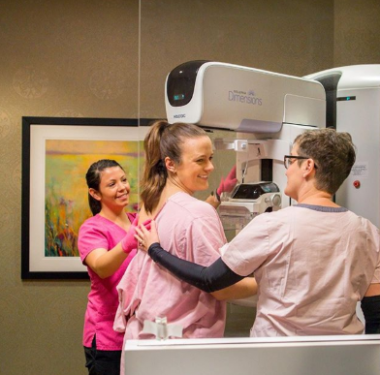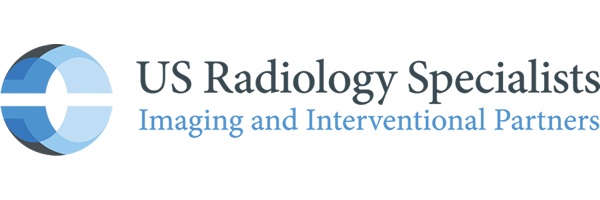Prioritizing Your Breast Health Now
There’s never enough time in the day. We get it. Life is busy as you’re focused on your family, your career, and taking care of others. It can be a real challenge to make self-care a priority as you work through your to-do list. Yet it’s important to take time for yourself and focus on your health and wellness – including your breast health. There are so many reasons to make screening mammograms a part of your annual routine. Here we give you 3!
Reason 1: Breast Cancer is Prevalent, Even in Younger Women
The two main risk factors for developing breast cancer are being a woman and aging. Breast cancer will affect 1 in 8 women in her lifetime, and of those diagnosed, 1 in 6 cancers will occur in women aged 40 to 49. Most women diagnosed have no family history, yet breast cancer in young women is more often hereditary than in older women. Additionally, breast cancer in younger women is more likely to be found at a later stage and is often more aggressive and difficult to treat.
These are all important reasons why breast health experts recommend annual screening mammograms starting at age 40. Clinical experience has shown that annual screening age 40+ results in the greatest mortality reduction, the most lives saved, and the most life years gained. In fact, according to the Society of Breast Imaging (SBI), 40% of all the years of life saved by mammography are among women in their 40s. So, while breast cancer impacts millions of lives every year, early detection saves more.
Charlotte Radiology follows clinical guideline recommendations from the following breast health experts to support annual screening for women starting at age 40 and in consultation with your Primary Care or OB/Gyn Physician:
- American Congress of Obstetricians & Gynecologists
- American College of Radiology/Society of Breast Imaging
- American Medical Association
- National Comprehensive Cancer Network
Are you approaching your 40th birthday? Be sure to have the conversation with your primary care physician or OBGyn. You can start adding your annual mammogram to your list of well visits for the year. Getting started doesn’t have to be hard if you make it a part of your annual routine and find time to prioritize it.
Reason 2: Early Detection Saves Lives
Early detection of breast cancer means less invasive treatments, reduced healthcare costs for patients and their families, and most importantly – more lives saved.
Through advancements in screening mammography, breast cancer can be detected early when it is most treatable. Charlotte Radiology uses advanced imaging technology called 3D digital breast tomosynthesis, or ‘tomo’, to help identify even subtle changes in breast tissue over time. 3D mammograms can help detect breast cancers 2-3 years before a lump can be felt by a physician or patient, and early detection is key to improved patient outcomes. Women diagnosed with Stage 0 or Stage 1 have a nearly 100% 5-year survival rate.
Breast cancer deaths have been reduced by approximately 40% from annual screening mammograms and save approximately 6,500 women’s lives in the United States each year. The importance of annual mammograms in finding and fighting breast cancer is a big reason why breast health experts do not recommend skipping your yearly screening or going longer intervals in between as that can leave cancers undetected, putting more women at risk in every age group.

At your annual well visit, discuss your breast health with your provider, including any changes or potential risk factors for breast cancer. If there are no concerns, you can follow the guidance for annual screening mammograms starting age 40. Women who are at a higher risk for breast cancer due to identified risk factors can begin screening at 35 to establish a baseline.
Reason 3: It’s Easy to Fit in With Your Busy Life
Your time is valuable. You’re always on the go with school pick-up or soccer practice or running to the grocery store to get that last ingredient for tonight’s dinner. Getting your annual mammogram can fit right into your busy schedule – you can call or go online to schedule your appointment at a time that’s convenient for you and even next day, and the exam itself takes less than 30 minutes. No physician referral is required for annual screening mammograms, and most insurance plans cover 100% for women age 40 and older.
Nervous about your appointment? Schedule and go with a friend for support! It can be your new yearly routine – you can schedule on your ‘mammiversary’ and get lunch or dinner together afterward. Whether you schedule your mammogram after childcare drop-off or on your way home from work, prioritizing your breast health is vital for your well-being.
Stay Healthy and Focus on Your Wellbeing
We’ve said it and we’ll say it again. Carving out time for self-care is essential to your health and well-being. Here are a few ways to stay healthy so that your main focus can be on YOU, your family, your career, and everything in between.
- Keep up with annual exams, including well visits & mammograms
- Eat a balanced diet
- Keep stress levels in check
- Exercise weekly – up to 30 mins per day where possible
Be sure to make breast health a priority at every age. Good breast health awareness, clinical exams at your well visit, and annual screening mammograms can help detect breast cancer early on when it is most treatable.
Find your reason and schedule your mammogram today.
Sources:
-
- National Cancer Institute www.cancer.gov/types/breast/risk fact sheet
- US Breast Cancer
- Journal Cancer August 2017: 2009/2015-2016 Cancer Intervention and Surveillance Modeling Network (CISNET)
- Statistics www.breast cancer.org/symptoms/understand_bc/statistics
- ACOG: www.acog.org/ACOG-Practice-Advisory on Breast Cancer Screening
- ACR/SBI: www.jacr.org/article/S1546-1440/Position Statement on Breast Tomosynthesis
- AMA: www.ama.assn.org/resources/annual meeting revisions to AMA policy
- NCCN: www.NCCN.org; Guidelines version 1.2019 Breast Cancer Screening and Diagnosis
- Intl Journal of Cancer 1996: 68:693-699 Breast Cancer Screening/Mammography in Women 40-49
- American Cancer Society www.cancer.org/cancer/breast cancer survival by stage
- https://www.cdc.gov/cancer/breast/young_women/bringyourbrave/breast_cancer_young_women/index.htm
- https://www.sbi-online.org/endtheconfusion/PatientResources/WhyScreenat40.aspx



